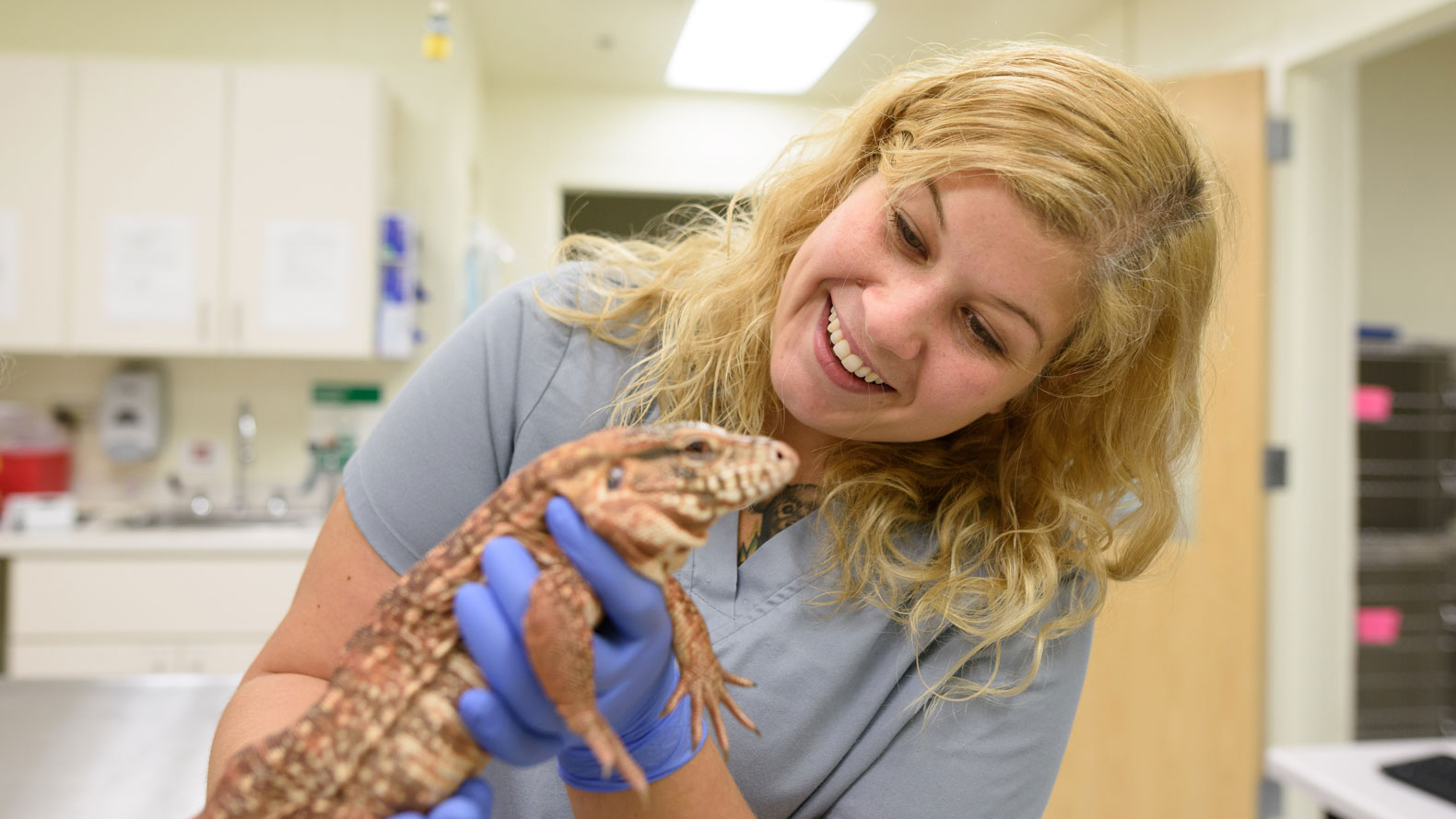National Veterinary Technician Week: Meet Chelsey Vanetten

Veterinary technicians are the equivalent of nurses in human medicine, except that their patients can’t talk and often won’t sit still. Vet techs play a critical role in the health of the animals we see every day at the NC State Veterinary Hospital. October 15 through 21 is National Veterinary Technician Week, and we’re giving a much-deserved salute to the more than 100 vet tech professionals who work at NC State. Each day this week, we’ll profile a different vet tech making a huge difference in the lives of animals and their owners.
Meet Chelsey Vanetten, a high-energy veterinary technician specialist in anesthesia who works in the exotic animal medicine service, which specializes in birds, fish, amphibians, reptiles and small mammals like guinea pigs and rabbits. Chelsey comes to us by way of Manassas, Virginia.
What is your typical day like?
There’s really not a typical day in exotics. You never know what you’re going to get. Just today we had a chinchilla, a bearded dragon, a Quaker parrot and a goldfish that had a mass removed from its wen. You have to know how to handle many different kinds of animals. A bird can have a heart rate of 400 beats a minute and a bearded dragon might have 40. Things like anesthesia and drawing blood samples is very different depending on the animal.
What is the most rewarding thing about your job?

I would say teaching the students that we have here, especially the ones who may be a little nervous dealing with some of the exotic animals. With my certifications and the background I have at the different places I’ve worked [Virginia Tech, the University of Florida and the University of Pennsylvania] I can use my experience to help them learn how to deal with a lot of different animals and situations.
What is the hardest part of your job?
We have up to six doctors in the service, plus students, so it can get a little overwhelming at times. We can have up to six appointments a day, plus we’re on call for emergencies.
What made you want to go into this field?
Horses. I wanted to be a vet as an undergrad, but I wasn’t interested in surgery and some of the other aspects of the job. But I still wanted to deal with animals, and I get to do the more fun parts of this work, like cuddling the animals. I first got into anesthesiology, when I was at Florida and at Penn, and I worked with a lot of zoo animals and birds and other exotics. I decided to focus on exotics to get more experience in that. Ultimately, I would like to get certified in three specialties and actually teach and do consulting.
What is your most memorable professional experience?
I just got my certification in anesthesia, which takes about two years, so right now that is my most memorable experience. I can’t believe it! The final exam takes eight hours.
Professionally, there are a number of things. The first time I got to intubate an alligator. That was in Florida. Or when we did a physical exam on an African elephant over at the state fairgrounds here. At the University of Pennsylvania I did an epidural on a bobcat. And once I was part of a an episode of the television series Life at Vet U on the cable channel Animal Planet giving anesthesia to a Galapagos tortoise. You can watch the episode here.
[give url=”https://securelb.imodules.com/s/1209/giving/plain.aspx?sid=1209&gid=214&pgid=3813&cid=6343&appealcode=LB&bledit=1&sort=1&dids=6032″ headline=”Support Vet Techs” subheadline=”Continuing Education Fund” ]
~Steve Volstad/NC State Veterinary Medicine
- Categories:


